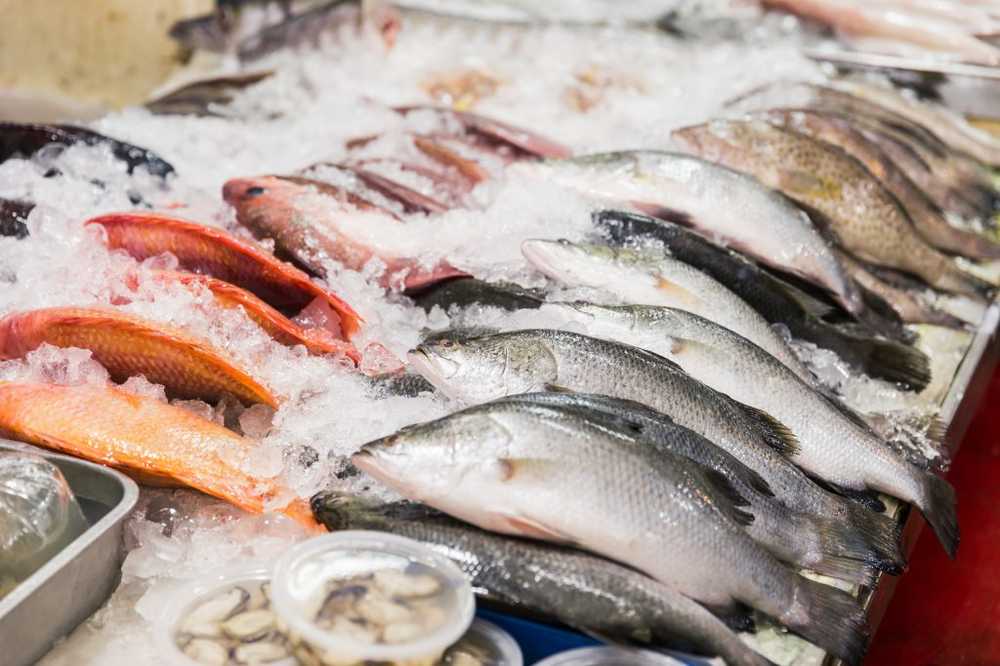Dangerous food allergy. New hope for fish allergic

Researcher: New hope for people with fish allergy
Although fish is considered to be healthy due to the high-quality proteins contained and the important omega-3 fatty acids, many people suffering from allergies have to do without fish completely, since eating them can sometimes lead to dangerous reactions. But new insights are giving people with a fish allergy hope.
Healthy fish
"Fish have it all: It provides high-quality, easily digestible protein (protein) and is an important source of iodine as marine fish. In addition, fatty fish such as herring, mackerel or salmon provide essential omega-3 fatty acids, "explains the ECARF Foundation on its website. "However, fish is also one of the foods most likely to trigger a food allergy," say the experts. And this can be life-threatening for those affected. But now there is new hope for fish allergic people.
 Fish allergy is one of the most dangerous food allergies ever. Sufferers usually have to abstain from eating fish completely. But now researchers report that there is hope for these allergy sufferers. (Image: coffeekai / fotolia.com)
Fish allergy is one of the most dangerous food allergies ever. Sufferers usually have to abstain from eating fish completely. But now researchers report that there is hope for these allergy sufferers. (Image: coffeekai / fotolia.com) One of the most dangerous food allergies
Although some fish could pose a health risk because it contains microplastics, fish consumption is generally considered to be healthier.
But not for allergy sufferers: As the Medical University of Vienna writes in a message, the fish allergy is one of the most dangerous food allergies, because it is often associated with potentially life-threatening symptoms, such as anaphylactic shock.
According to the experts, persons suffering from fish allergies are not exposed to this risk solely by eating fish, but also by accidentally inhaling fish fumes in markets or restaurants, as well as through skin contact - especially in countries that are at sea and where Fish is also an economic factor.
But now there is new hope for those affected: An international team of researchers has found that the protein parvalbumin, which usually triggers the allergy, is much less allergenic in cartilaginous fish than in bony fish.
The results of the scientists were published in the "Journal of Allergy and Clinical Immunology".
Subjects could eat fish despite allergy
According to the research group led by Heimo Breiteneder and Tanja Kalic of the Institute of Pathophysiology and Allergy Research of the Medical University of Vienna, the protein parvalbumin in the meat of cartilaginous fish - different genera of sharks and rays - is much less effective than the allergen in meat of much-consumed bony fish.
The nail-stingray (Raja clavata), a cartilaginous fish, could be identified as a potential food alternative for persons with fish allergy.
Ten out of eleven of the test subjects were able to consume this fish without any allergic reaction despite proven allergy.
"Therefore, and assuming that allergy sufferers consult an appropriate allergy specialist in advance and are tested for possible nail brooch tolerance, there may be an unexpected alternative for people who still want to eat fish," says Breiteneder.
These rays are widespread - from the Eastern Atlantic to Norway, the North Sea to Namibia - and are being rediscovered as a food fish and delicacy. Culinary, the wing-like pectoral fins are used as a filet.
"This initial study has far-reaching potential. We now plan to globally expand the study, which has initially focused on the European population, to ultimately significantly improve the quality of life of people suffering from a fish allergy around the world, "explains Kalic.
"We're also working to expand the range of fish that people with fish allergy can safely consume." (Ad)


